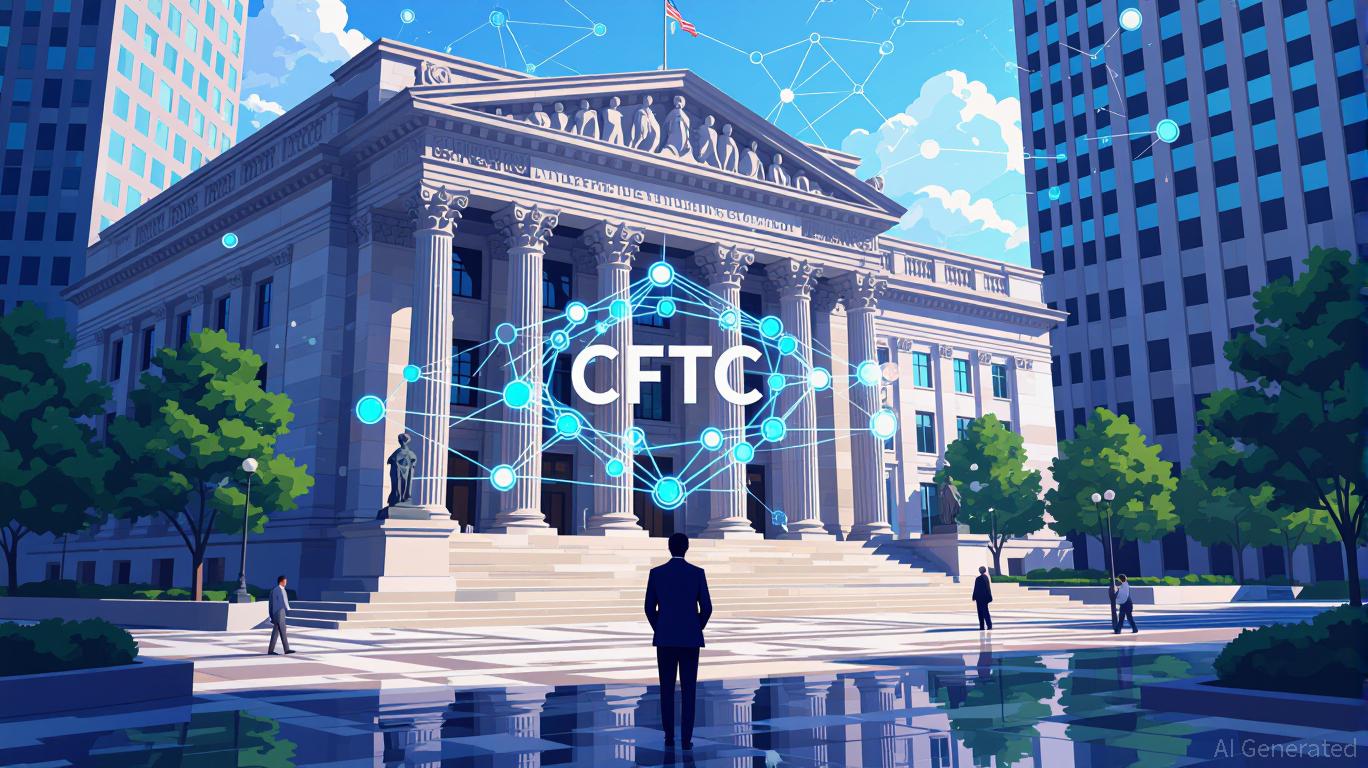Blockchain Is Making Real Estate as Liquid as Crypto — Here’s How
- Propy leverages blockchain to streamline real estate transactions via smart contracts, reducing intermediaries and paperwork. - Property tokenization enables fractional ownership, democratizing access to real estate investments previously limited to high-net-worth actors. - Challenges persist in regulatory alignment, cultural resistance to paperless deals, and improving blockchain platform usability for mainstream adoption. - Growing institutional interest and evolving regulations suggest blockchain coul
Propy, a leading real estate platform leveraging blockchain technology, is enhancing the on-chain real estate market by streamlining property transactions. The company is capitalizing on blockchain's potential to eliminate intermediaries, reduce paperwork, and automate processes through smart contracts. This transformation is particularly significant in the real estate sector, where traditional transactions have long been hindered by inefficiencies such as prolonged timelines and high fees [1].
Blockchain’s integration into real estate is enabling the digitization of property transactions. By using decentralized ledgers, real estate deals can be executed with greater speed and transparency. Smart contracts can verify ownership, manage escrow, and facilitate instant payments, significantly shortening the transaction timeline. What traditionally took months can now be completed in days, according to insights shared by Bruno P. Allaire, a leader in digital transformation across industries including real estate [1].
One of the most transformative aspects of blockchain in real estate is tokenization. This process allows physical properties to be represented as digital assets, enabling them to be divided into tradable shares. Tokenization introduces a new level of liquidity to real estate, making it easier for investors to buy and sell fractions of properties. This innovation democratizes access to real estate investments, which were previously limited to high-net-worth individuals and institutional investors [1].
However, the widespread adoption of blockchain in real estate is not without challenges. Legal and regulatory frameworks have not yet fully caught up with the technological advancements. Cultural resistance to paperless transactions remains a hurdle, as many still associate property deals with physical contracts and intermediaries like banks and notaries [1]. Additionally, the user experience on blockchain platforms must evolve to become as seamless as traditional digital transactions. Platforms need to be secure, user-friendly, and capable of handling high transaction volumes to attract mainstream users [1].
Despite these challenges, progress is evident. Regulators are beginning to offer clearer guidelines, and platforms are maturing. This shift is paving the way for blockchain to move from theoretical potential to real-world application. Institutional players are exploring blockchain to cut costs and speed up transactions, while startups are building compliant systems to expand access. The trajectory suggests that real estate will soon be as fluid and accessible as traditional cryptocurrencies [1].
As blockchain technology continues to evolve, it is becoming a foundational element in reimagining real estate transactions. By addressing inefficiencies and enhancing accessibility, blockchain is not just a trend but a transformative force in the industry. The key now is to ensure that platforms continue to improve in usability and compliance, aligning with both investor expectations and regulatory requirements [1].

Disclaimer: The content of this article solely reflects the author's opinion and does not represent the platform in any capacity. This article is not intended to serve as a reference for making investment decisions.
You may also like
Aave Horizon: Bridging RWAs and DeFi to Unlock Trillion-Dollar Institutional Liquidity
- Aave Horizon, launched by Aave Labs in 2025, bridges real-world assets (RWAs) with DeFi by tokenizing U.S. Treasuries, CLOs, and funds for stablecoin borrowing. - The $26B tokenized RWA market, led by Ethereum, benefits from Horizon's Chainlink NAVLink oracle, enabling real-time collateral valuation and institutional compliance. - Institutions like BlackRock and JPMorgan leverage Horizon to deploy $19B in capital via arbitrage and leveraged strategies, outperforming traditional finance efficiency. - Regu

Bitcoin's $160K Predicted Rally and the Altcoin Infrastructure Boom: A Strategic Case for Institutional-Grade Cryptocurrencies
- Bitcoin's projected $160K surge by 2025, driven by institutional ETF inflows and regulatory clarity, is catalyzing a broader crypto market transformation. - XRP, ADA, and SOL are emerging as key altcoins with real-world utility in cross-border payments, scalable infrastructure, and institutional-grade DeFi ecosystems. - XRP's commodity status post-SEC ruling and ProShares Ultra XRP ETF's $1.2B inflow highlight its institutional adoption in remittances and DeFi. - ADA's regulatory clarity and Solana's hig

CFTC Leadership Vacuums and Crypto Regulatory Uncertainty: Navigating the New Normal for Institutional Investors
- CFTC's leadership vacuum and reduced enforcement staff hinder effective crypto regulation. - Institutional investors shift to regulated assets like Bitcoin ETFs amid uncertainty. - Policy fragmentation between CFTC and SEC complicates compliance for multi-jurisdictional firms. - Confirming Brian Quintenz and restoring full staffing could address regulatory gaps.

LRC -161.64% 7-Day Drop Amid Market Volatility
- LRC faces intensified regulatory scrutiny with investigations into compliance protocols across key markets. - Strategic shifts include terminating third-party partnerships and prioritizing decentralized infrastructure and open-source development. - Governance upgrades introduce multi-sig models and expanded voting rights to address community concerns over volatility. - Technical upgrades boost network throughput by 20%, aiming to enhance scalability and energy efficiency for long-term competitiveness. -
